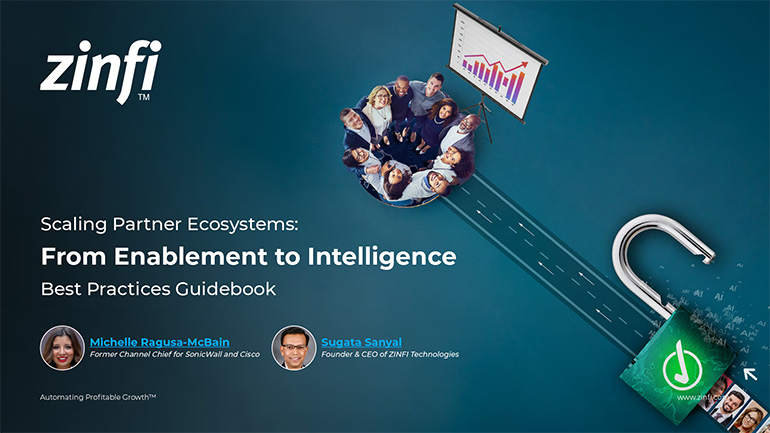Glossary - What is - Transaction Automation
What is Transaction Automation?
Transaction automation refers to using technology to streamline and automate financial transactions, reducing the need for manual intervention. This process leverages software applications and algorithms to process transactions efficiently, ensuring accuracy and compliance with financial regulations. Organizations can significantly enhance their operational efficiency and reduce errors by automating repetitive tasks such as data entry, payment processing, and reconciliation.
Transaction automation plays a crucial role in the context of partner ecosystem management and partner management automation. It enables seamless financial interactions between partners, ensuring timely and accurate processing of payments, commissions, and incentives. This automation helps maintain transparency, build trust, and improve the overall efficiency of the partner ecosystem. Automated transaction systems can integrate with partner management platforms, providing real-time visibility into financial activities and facilitating better decision-making.
Key Takeaways:
- Efficiency and Accuracy in Financial Transactions: Transaction automation significantly improves the efficiency and accuracy of financial transactions. Organizations can reduce processing time and minimize human errors by automating tasks such as invoice processing, payment approvals, and fund transfers. Automated systems ensure transactions are executed according to predefined rules, maintaining consistency and compliance.
- Enhanced Partner Relationships: Effective transaction automation can enhance partner relationships by ensuring timely and accurate payments. Partners can rely on automated systems to receive their commissions and incentives without delays, fostering trust and satisfaction. This reliability strengthens the partnership and encourages long-term collaboration. Discover how ZINFI’s partner management automation tools support partner relationships here.
- Cost Savings and Resource Optimization
Automating financial transactions leads to significant cost savings and optimal use of resources. Organizations can reduce the labor costs associated with manual transaction processing and allocate resources to more strategic activities. Automation also minimizes the risk of costly errors and fraud, safeguarding the organization’s financial integrity. Watch this video to learn how Partner Relationship Management can reduce costs.
- Improved Compliance and Reporting: Transaction automation ensures compliance with financial regulations by maintaining accurate records and generating detailed reports. Automated systems can track and document every transaction, providing a clear audit trail and facilitating regulatory compliance. This capability is crucial for organizations operating in highly regulated industries.
- Scalability and Flexibility: Transaction automation solutions offer scalability and flexibility to accommodate growing business needs. As organizations expand, automated systems can handle increased transaction volumes without compromising performance. These solutions can be customized to meet specific business requirements, providing the flexibility to adapt to changing market conditions.
Summary of Key Takeaways:
Transaction automation enhances financial efficiency and accuracy, strengthens partner relationships, saves costs, ensures compliance, and offers scalability. Organizations can improve operational efficiency by automating financial transactions, building trust with partners, optimizing resources, and complying with regulatory requirements. These benefits make transaction automation a vital component of modern business operations.
Key Examples:
- Automotive Manufacturing: Transaction automation facilitates seamless supply chain operations in automotive manufacturing. Automated systems manage payments to suppliers and vendors, ensuring timely procurement of materials and parts. This efficiency helps manufacturers maintain production schedules and reduce downtime. Automated financial reporting also supports compliance with industry regulations and enhances financial transparency.
- Consumer Electronics: Consumer electronics companies use transaction automation to streamline their financial processes, from purchasing components to processing customer payments. Automation ensures accurate and timely transactions, improving cash flow management and reducing the risk of errors. This efficiency is crucial for maintaining competitiveness in the fast-paced electronics market.
- Energy Production: Energy companies benefit from transaction automation by optimizing their financial operations, including billing, payments, and contract management. Automated systems precisely handle complex transactions, such as energy trading and settlements. This automation supports regulatory compliance and enhances operational efficiency in a highly dynamic industry.
- Financial Services: In the financial services sector, transaction automation is essential for managing large volumes of transactions, from loan processing to investment management. Automated systems ensure accuracy and compliance, reducing the risk of errors and fraud. This automation enables financial institutions to provide better customer service and meet regulatory requirements efficiently.
- Food and Beverage: The food and beverage industry relies on transaction automation to manage payments to suppliers, distributors, and retailers. Automated systems ensure timely and accurate transactions, supporting efficient supply chain operations. This automation helps businesses maintain inventory levels, reduce waste, and improve financial reporting.
- Healthcare Services: Healthcare providers use transaction automation to streamline billing and payment processes, reducing administrative burdens and improving cash flow. Automated systems handle insurance claims, patient payments, and vendor transactions with accuracy and compliance. This efficiency allows healthcare organizations to focus more on patient care.
- Information Technology: IT companies benefit from transaction automation by managing financial transactions related to software licensing, service contracts, and customer payments. Automation ensures timely invoicing and payment processing, improving cash flow and economic stability. This efficiency supports the growth and scalability of IT businesses.
- Pharmaceutical Development: In pharmaceutical development, transaction automation facilitates the management of complex financial transactions, including research funding, clinical trial payments, and vendor transactions. Automated systems ensure compliance with industry regulations and provide accurate financial reporting, supporting the development and commercialization of new drugs.
- Retail Industry: Retailers use transaction automation to manage payments to suppliers, process customer transactions, and handle returns and refunds. Automated systems ensure accurate and timely financial transactions, enhancing customer satisfaction and improving inventory management. This efficiency is crucial for maintaining competitiveness in the retail market.
- Telecommunications: Telecommunications companies use transaction automation to manage billing, payments, and financial reporting. Automated systems handle high volumes of transactions with accuracy and compliance, supporting efficient operations and customer satisfaction. This automation enables telecom companies to focus on delivering quality services and expanding their networks.
Conclusion:
Transaction automation is a transformative technology that enhances financial efficiency, accuracy, and compliance across various industries. By automating financial transactions, organizations can reduce manual intervention, minimize errors, and ensure timely processing of payments and invoices. This automation is particularly crucial in partner ecosystem management, where it facilitates seamless financial interactions between partners, strengthens relationships, and improves operational efficiency.
In automotive manufacturing, transaction automation streamlines supply chain operations, ensuring timely payments and procurement of materials. Consumer electronics companies use automation to manage costs and improve cash flow, while energy companies optimize billing and settlements. Financial services institutions rely on transaction automation to manage large volumes of transactions accurately and compliantly.
The food and beverage industry benefits from automated financial processes that support efficient supply chain management. Healthcare providers use automation to streamline billing and payments, reducing administrative burdens. Through automated invoicing and payment processing, IT companies enhance cash flow and economic stability. Pharmaceutical development relies on transaction automation to manage complex financial transactions and comply with industry regulations.
Retailers improve customer satisfaction and inventory management through automated financial processes, and telecommunications companies manage high volumes of transactions with accuracy and compliance.
Transaction automation is essential for modern business operations, providing efficiency, accuracy, compliance, and scalability. Organizations can optimize their financial processes by leveraging automated systems, building stronger partner relationships, and achieving sustainable growth.
Associated Keywords:
- Financial Transaction Automation
- Automated Payment Processing
- Partner Ecosystem Financial Management















